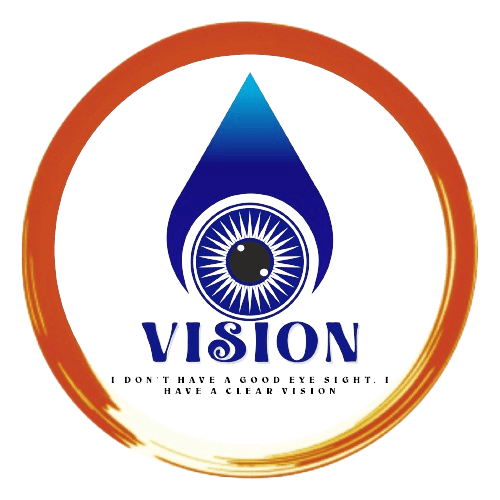The Power of PPC Ads: Pay-Per-Click Strategies for Lead Generation.
In today’s digital age, capturing potential customers’ attention is a constant battle. With countless businesses vying for the same audience, standing out can feel like an uphill climb. This is where Pay-Per-Click (PPC) strategies for lead generation advertising comes in as a potent weapon. By strategically investing in PPC ads, you can effectively target your ideal customers, drive traffic to your website, and ultimately generate high-quality leads.
Understanding the Power of PPC: Pay-Per-Click Strategies for Lead Generation.
PPC advertising is a method where you pay a fee every time someone clicks on your ad. This might sound simple, but when done right, it can be a game-changer for your business. Here’s why:
Instant Visibility: Your ads can show up at the top of search engine results or on related websites, giving you instant visibility to your target audience.
Precision Targeting: Unlike traditional advertising, PPC allows you to pinpoint your ideal customer based on demographics, interests, and behavior.
Measurable Results: You can track the performance of your campaigns in real-time, allowing you to optimize your strategy for maximum ROI.
Scalability: Whether you’re a small startup or a large enterprise, PPC can be scaled to fit your budget and goals.
Effective PPC Strategies for Lead Generation: Pay-Per-Click Strategies for Lead Generation.
While PPC offers immense potential, success hinges on implementing the right strategies. Here are some proven tactics to help you generate high-quality leads:
1. Keyword Research is King: Pay-Per-Click Strategies for Lead Generation.
Identify Relevant Keywords: Thorough keyword research is essential to ensure your ads appear for the right search terms.
Prioritize High-Intent Keywords: Focus on keywords that indicate strong purchase intent, such as “buy now” or “best [product].”
Negative Keywords: Exclude irrelevant keywords to prevent wasted clicks.
2. Craft Compelling Ad Copy: Pay-Per-Click Strategies for Lead Generation.
Clear and Concise: Your ad copy should be clear, concise, and compelling, highlighting the unique value proposition of your offer.
Strong Call to Action: Encourage clicks with a strong and persuasive call to action, such as “Get Your Free Quote” or “Start Your Trial.”
Ad Extensions: Utilize ad extensions to provide additional information, such as phone numbers, location, or sitelinks, to enhance click-through rates.
3. Create High-Converting Landing Pages: Pay-Per-Click Strategies for Lead Generation.
Targeted Landing Pages: Create dedicated landing pages for each ad campaign to provide a seamless user experience.
Clear Value Proposition: Clearly communicate the benefits of your product or service on the landing page.
Strong Lead Capture Forms: Keep lead capture forms concise and focused on essential information.
4. Leverage Remarketing: Pay-Per-Click Strategies for Lead Generation.
Stay Top of Mind: Re-engage website visitors with targeted ads to increase conversions.
Personalized Messaging: Tailor your remarketing ads based on user behavior to deliver relevant messages.
5. Continuous Optimization: Pay-Per-Click Strategies for Lead Generation.
Track Performance Metrics: Monitor key performance indicators (KPIs) like click-through rate, conversion rate, and cost per acquisition.
A/B Testing: Experiment with different ad variations, landing page designs, and bidding strategies to find what works best.
Bid Management: Adjust bids based on performance to maximize ROI.
Conclusion: Pay-Per-Click Strategies for Lead Generation.
PPC (Pay-Per-Click) advertising is a powerful digital marketing tool that allows businesses to reach their target audience through paid search results. By understanding the fundamentals of PPC and implementing effective strategies, you can generate high-quality leads and drive significant business growth.
One of the key advantages of PPC is its ability to deliver targeted results. By carefully selecting relevant keywords and creating compelling ad copy, you can ensure that your ads are shown to users who are actively searching for your products or services. This targeted approach helps to improve the quality of your leads and increase your chances of conversion.
To effectively utilize PPC, it’s essential to have a solid understanding of the platform you’re using. Whether you’re advertising on Google Ads, Bing Ads, or another platform, familiarize yourself with the features, tools, and best practices. This knowledge will enable you to create and optimize your campaigns for maximum impact.
Effective keyword research is another crucial component of PPC success. Identify relevant keywords that your target audience is likely to search for and incorporate them into your ad copy and landing pages. Use keyword tools and analytics to track the performance of your keywords and make necessary adjustments.
Creating compelling ad copy is equally important. Your ad copy should be clear, concise, and persuasive. Use strong calls to action and highlight the unique benefits of your products or services. A/B testing can help you determine which ad variations perform best.
Landing page optimization is another key factor. Ensure that your landing pages are relevant to your ads and provide a seamless user experience. Make it easy for visitors to take the desired action, whether it’s making a purchase, signing up for a newsletter, or requesting a quote.
PPC is an ongoing process that requires continuous optimization and experimentation. Regularly monitor your campaigns, analyze your results, and make data-driven adjustments to improve performance. Stay up-to-date with industry trends and best practices to ensure that your PPC strategies remain effective.
By understanding the fundamentals of PPC and implementing effective strategies, you can harness its full potential to achieve your marketing goals. Remember, PPC is a valuable tool for generating high-quality leads and driving business growth. Stay focused, analyze your results, and adapt your campaigns accordingly to achieve long-term success.Sources and related content




